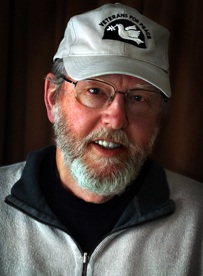If our wars
were to make killers of all combat soldiers, rather than men who have killed,
civilian life would be endangered for generations or, in fact, made impossible.
-
J. Glenn Gray, from The Warriors: Reflections on Men in Battle (1959)" "
I
lost myself when we busted down that door."
I
lost myself. Please don't make me tell any more."
-
Tom Mullian, from "Private Charlie Mac-- "
Why
can't we all just get along?"
- Rodney King
According to a New York Times report on Memorial Day , psychologists are re-thinking Post Traumatic Stress and other combat-related issues applied to multi-tour combat soldiers. According to Times writer Benedict Carey, the challenge these days is less emotional healing than how to unlearn the hyper-vigilance and shoot-first, ask-questions-later violence necessary for survival in a combat zone. That is, using the current vogue term, can experienced warriors be adjusted from a wild, adrenaline-fueled state of barbarism to one emphasizing community and civilization?

An aging Stephen Seagal in the movie Sniper: Special Ops and a classic family and community image
(Image by unknown) Details DMCA
This is a politically tricky matter, since this sort of question inevitably leads to areas critical of US war policy. It's notable that the research cited by the May 30 Times story is being done in civilian universities (Harvard, the University of Texas, the University of New Haven, the University of North Carolina) and other civilian research sites -- not by the military or the Veterans Administration, federal government agencies naturally reluctant to wade into anything that might be critical of US war policy. The veteran at the center of the Times story is an ex-Ranger whose unit specialized in what the Times reported is sometimes known as "vampire work," quick raids, often late at night, on high-profile insurgent targets for capture or killing. Just the term "vampire work" suggests the experience being considered is morally ambivalent.
A New York Times Magazine article on June 12th titled "Aftershock" took a different tack. Writer Robert F. Worth reported on new studies by military-connected researchers that suggested to him what we think of as PTSD might be less "emotional" and more "organic." The story's promo line asks: "Could PTSD turn out to be more physical than psychological?" The story treats new research on traumatic brain injury as some kind of watershed discovery questioning the psychological focus of PTSD on issues like bad memories that don't sit right in a veteran's mind and what is known as the "moral wound." On one hand, the article says the matter is complex, while the writing and headlines heavily emphasize the focus on physical damage as a major cause of PTSD.
Worth is an experienced Middle East correspondent with a new book on that region called A Rage For Order that has received glowing reviews. Two of these reviewers said the book described a "Hobbesian" world descended into ethnic and religious factionalism, a world that the US military has been inserted into for decades, often in a very destructive and even contradictory manner that exacerbates these Hobbesian conditions. Add to this the often hysterical follow-up to the Orlando massacre and the mix becomes extremely volatile. A well-armed, mentally-unbalanced Afghan/American kills 49 bar goers and tells a 911 operator he's working for ISIS; he also says he's loyal to al-Qaeda and Hezbollah, Sunni and Shia organizations at odds with each other. The militarist right see this as evidence of a new Cold War. They beat the drums for more military action and bombing against ISIS in Iraq's Anbar Province and Syria. President Obama is blamed for ISIS, and the right argues the occupation of Iraq should be permanent. The fact ISIS was created as a direct reaction to the US invasion and occupation of Iraq is lost in the Hobbesian madness.
Thomas Hobbes was an 17th century English political philosopher who believed in a brute basis for life and the need for a social contract necessarily enforced by violence. Here's a famous passage from The Leviathan:
"In such condition, there is no place for industry; because the fruit thereof is uncertain: and consequently no culture of the earth; no navigation, nor use of the commodities that may be imported by sea; no commodious building; no instruments of moving, and removing, such things as require much force; no knowledge of the face of the earth; no account of time; no arts; no letters; no society; and which is worst of all, continual fear, and danger of violent death; and the life of man, solitary, poor, nasty, brutish, and short."
The conservative African American philosopher Thomas Sowell in A Conflict of Visions very neatly breaks down the political struggles in America. He sees it as a struggle between two basic visions: the constrained and un-constrained. The constrained visionaries include those like Hobbes who see life as brutish and those like Adam Smith who see moral values as a trade-off from the rule of self-interest and a free market. The un-constrained vision is rooted in the likes of Jean Jacques Rousseau and William Godwin; they see humanity as perfectable -- or in the spirit of the current term, "progressive." Progress is possible; in other words, a moral, decent society is not a matter of "trade-offs" from self-interest, but a matter of determined decisions and actions. Sowell sees the struggle between these two political visions as a continuum: "[I]n the real world there are often elements of each inconsistently grafted on the other, and innumerable combinations and permutations."
(Note: You can view every article as one long page if you sign up as an Advocate Member, or higher).




